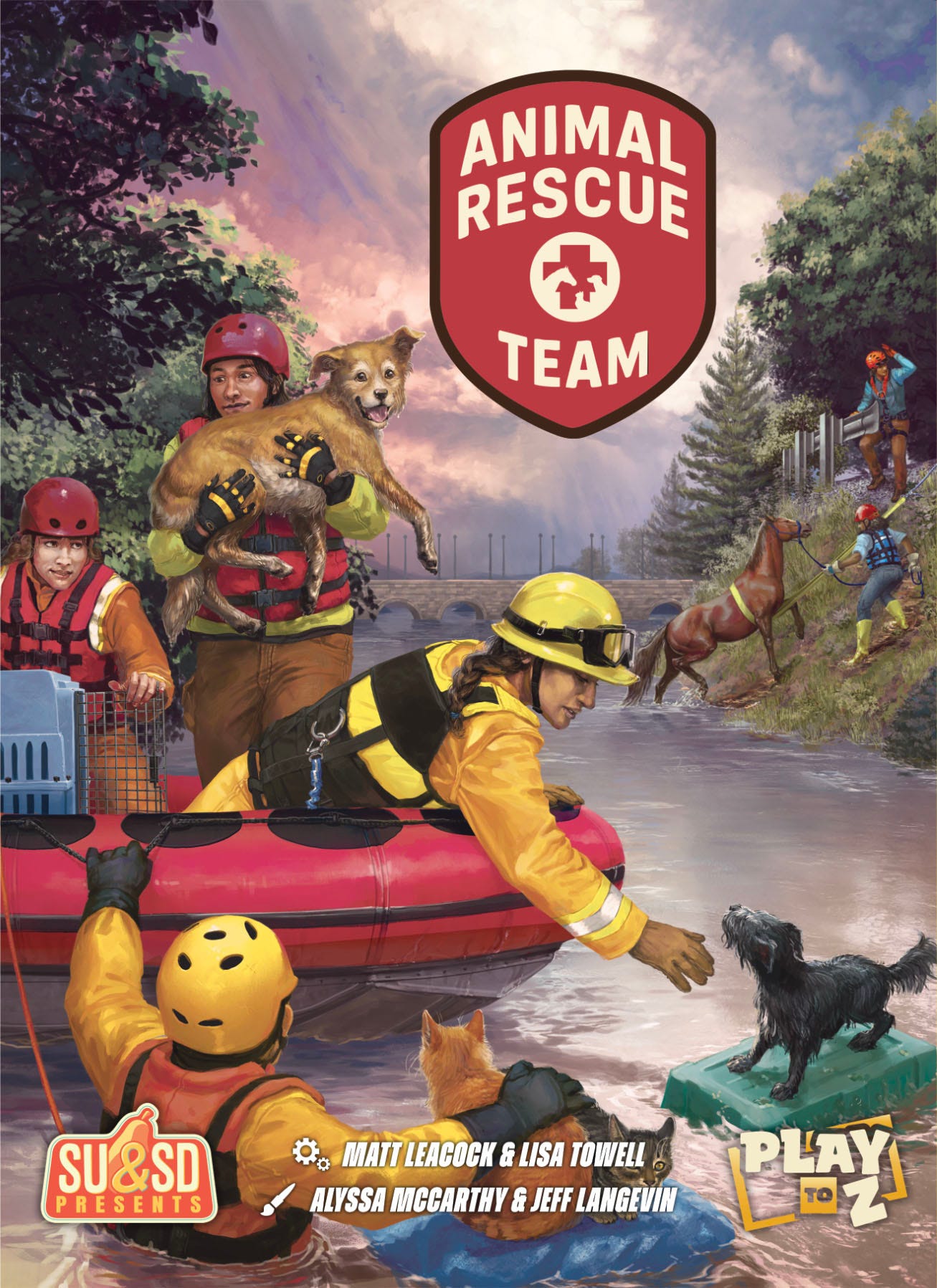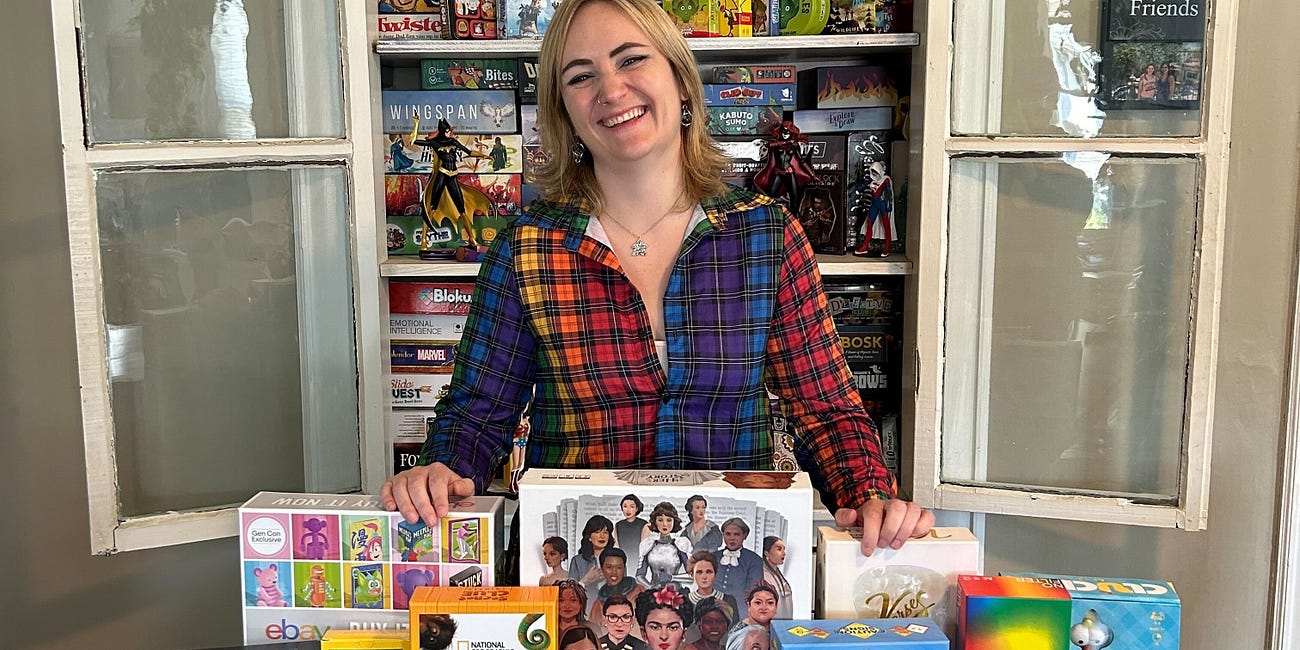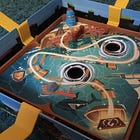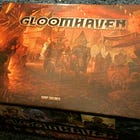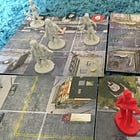Animal Rescue Team: 'The stories are inspired by real-world rescues'
Pandemic designer Matt Leacock teams up with real-life animal rescuer Lisa Towell for upcoming co-op board game. Plus, an update on the impact of US import tariffs on the tabletop game industry
Minks in sinks! Dogs in bogs! Owls under trowels!
All perilous scenarios that our animal friends can face. Luckily, there are good, kind, brave people who have the tools and the experience to save our four-legged/winged/slithering friends from such horrors.
The Animal Rescue Team, that’s who. And gamers will soon get the chance to work together to, let’s say, save a sheep in a Jeep in a race against time, all without having to leave their own homes.
Or, admittedly, actually saving any real animals. But it’s the thought that counts. However, pet owners could be inspired to plan for when disaster strikes a furry friend.
King of the Co-op Matt Leacock, who delivered collaborative games to the tabletop with Pandemic and Forbidden Island, is incorporating the mechanism into the theme of animal salvation and shelter for his latest creation – and has worked with real-life rescuer Lisa Towell as co-designer of this family-friendly title for extra realism points. Gamers will therefore be problem-solving real-world simulations that Lisa and her colleagues have faced.
So, will playing Animal Rescue Team help you know what to do next time you stumble upon a goose in a sluice? We spoke to Matt and Lisa to find out.
How would you describe Animal Rescue Team and who is the game aimed at?
ML: Animal Rescue Team is a family strategy game for one to four players.
It’s perfect for people who love animals, logistics puzzles, co-operative games, as well as anyone who enjoys loading cute animal Meeples into little toy vehicles.
Everyone plays together as a group of specialists who use their unique skills to help save animals after a series of major disasters has hit the area.
If you and your team can complete three missions while staying on top of the many rescues that require your attention, you’ll all win the game.
In the game, players get help from expert specialists to safely evacuate animals to shelters. How is this enacted in the game’s mechanics?
ML: Players not only get help from the specialists – they are the specialists! Each turn, a new rescue appears, and each rescue shows a different animal (or animals) who need your help.
To rescue them, you’ll want to bring specific specialists, equipment and vehicles with you so that you have greater odds of success. For example, for the rescue, “Cows trapped in a river,” you would add bonuses to your roll if you brought along the swiftwater technician, the rope rescuer, the dry suit, or the boat.
If your roll is successful, the animals are no longer in danger. You load them into your vehicle, collect some tokens (representing experience gained in the field) as a reward, and can drop the animals off the next time you’re in a shelter.
If you’re unsuccessful, you’ll need to try again. But you only have so much time to complete each rescue.
‘The stories are inspired by real world rescues but they also had to work mechanically in the game’ – Matt Leacock
How did your collaboration come about? Did the idea come first and an expert in the field was needed, or did a chat spark up inspiration?
ML: I had the idea to rework an earlier co-operative game of mine called Thunderbirds, into something new that would appeal to a wider audience.
Chatting about it with my family, we all recalled playing a game that my daughter, Anna, had designed called Animal Rescue when she was quite young. Anna used to change the rules of the game every time we played so that she would win.
Rescuing animals sounded like a great story for a game and, as it happened, we knew a real-life animal rescuer.
I reached out to Lisa not long after, and she and I began ripping apart my old game and then started the long process of developing a new game from it, adding, removing and changing elements, until it was the perfect match for the new stories we wanted to tell.
How have rescue scenarios been selected for the game? Is there any randomisation or are there particular plot lines for players to work through with choices of equipment to use?
ML: There was a lot of back-and-forth when developing the rescue stories.
The stories are inspired by real-world rescues but they also had to work mechanically in the game. In many cases, real-world stories provided ideas for the combinations of elements on the rescue cards. In other cases, the constraints of the game provided prompts for writing brand-new rescue stories.
Each time you play you’ll see a different subset of the 42 rescue cards in the game and will need to complete three of the 25 different missions of varying difficulty. The game essentially becomes a big story and puzzle generator.
‘There’s nothing quite like the feeling of knowing that you helped an animal in their time of greatest need’ – Lisa Towell
Are there any real-life scenarios that you’ve experienced included in the game?
LT: Absolutely! Many of the scenarios in the game were inspired by my personal experiences, or by stories I’ve heard from other animal disaster responders.
I remember one cat who somehow survived a wildfire. She was hiding under a building – we could see that her whiskers were singed off. It took some patience to catch her because she was so scared, but I finally got her into a carrier and straight to a veterinarian to treat her burned paw pads.
There’s nothing quite like the feeling of knowing that you helped an animal in their time of greatest need. The reunifications of animals with their families are beautiful – it makes me so happy to see the joy of people who have experienced terrible losses when they take their animal friend back into their arms.
We often see unexpected things in animal rescue work – unusual, exotic or even illegal animals need rescuing just like all the other animals. The tiger in the game represents these animals. Over time, I am learning how to handle and care for many species, like koi fish and emus.
I’ve also responded to some human-caused disasters, like dogs or roosters used for fighting, or hens abandoned at a large-scale egg farm, or cats kept in poor conditions by a hoarder. These are very sad, but I’ve been grateful for the opportunity to help these animals take the first few steps towards a better life.
Many of the challenges in the game come from real-life situations that animal responders face all the time, like disease spreading in an animal shelter, paperwork issues, cell phone outages, and extra animals discovered along the way.
What do you hope gamers will learn from playing the game about your line of work?
LT: In the animal disaster response business, we always say that we save more animals through community outreach and education than we do during actual disasters.
If everyone who plays the game takes a few minutes to plan for the safety of their animal companions in a disaster, that’s a huge win. Do you have a disaster kit ready to go, with supplies for your animals? Do you have leashes, carriers, or halters handy? Do your animals have microchips? Have you practised evacuating your animals at short notice?
You can help even more by spreading the word to your family, friends, and neighbours about animal disaster preparedness.
Animal Rescue Team is part of a new line of titles under the SU&SD Presents imprint, a partnership with tabletop game reviewers Shut Up & Sit Down and publishing house Play to Z. How have SU&SD been involved in the game’s development and what discussions did you have between all parties about the partnership?
LT: When we met with SU&SD, I talked about my background as an animal disaster responder, and how rewarding this work is. I felt that they could really see my passion coming through and that made me excited to work with them – I felt that they understood and appreciated how Animal Rescue Team will give a broader audience visibility into the workings and importance of animal disaster response.
ML: SU&SD has been a really supportive partner. They understood what we were trying to do with the game and offered some valuable feedback on the design of the box cover as well as the tone of some of the interior text.
They understood that while some of the content is serious in nature, the game can be quite goofy fun – it’s possible to strand your teammate in a remote rural area, for example – and it was important for those moments to come through as well.
Star Wars artist Jeff Langevin and fantasy illustrator Alyssa McCarthy are providing the artwork. How are their styles contributing to the game?
LT: I’m so happy with the animal illustrations on the rescue cards. Alyssa did an amazing job capturing not just the look but also the personalities of all the animals. I think that’s a big part of what makes this game engaging – the feeling of relating to each animal as an individual, and caring about what’s happening to them.
ML: And Jeff’s board has really given Animal Rescue Team a sense of place. Each of the various locations of the board have a distinct character to them. That makes it easier to both find and imagine the different spaces on the board.
What do you look for in a collaborative game aimed for the family? Do you have any particular starting point?
ML: I like to give families a good challenge! That said, it’s important that the game’s system isn’t overly complex.
In Animal Rescue Team, for example, there are only two main actions that you can select from – move and rescue – and you can only do three actions per turn. But even given these constraints, there’s an amazing array of possible decisions each turn.
I also like designing co-operative games for families since there’s very little downtime in them as everyone can contribute ideas throughout play. Having open information is also helpful since players of varying abilities help each other out more readily.
I also try to keep the games to no more than about 30–60 minutes to stay within the attention span of younger players.
I usually start by trying to come up with a novel puzzle or challenge that the group can solve or overcome together.
Do you have any favourite board games you and family members enjoy playing together?
ML: Absolutely. Some favourites of ours include The Crew, Just One, Decrypto, my upcoming game, Flickering Stars, and many of Reiner Knizia’s titles, including The Quest for El Dorado.
LT: I really love playing co-operative games, maybe because it mirrors my real-life work of rescuing animals as part of a team. Pandemic is always fun, and I thought the Pandemic Legacy games were fabulous with all the storytelling and surprises.
How’s the crowdsourcing timeline looking and when can gamers expect to see Animal Rescue Team in stores?
ML: While the initial idea was to crowdfund the game, Play to Z is now planning on bringing the game directly to retail this fall. Keep an eye out for it at your friendly local game store.
For more information, visit leacock.com
Tariff update: Gloomhaven delayed, Stonemaier ‘sues president’ and TTGDA president provides rights advice
Last week, we reported on the wide-reaching impact that sweeping import tax hikes imposed by the US administration had had on the tabletop games industry.
With tariffs on China, where much of the industry bases its manufacturing, hitting the 145% mark, further cracks have started to show.
Cephalofair Games has announced Gloomhaven’s second edition, one of the most hotly anticipated launches in the industry, has been delayed and the publisher’s COO, Price Johnson, said in an interview with CNN that the market volatility caused by the tariffs meant the situation is “impossible”.
“The story keeps changing,” Johnson said. “We can’t plan around that. Right now, I couldn’t tell you what our pricing would even need to be in the United States to make our products viable because it changes every other day.”
Spirit Island publisher Greater Than Games announced last week that it had undergone a reduction in staff and that “all new projects are suspended as the global tariff situation remains volatile”.
Fighting back against the tariffs, Stonemaier announced this week that it was “suing the president”.
“We are joining a lawsuit that will challenge the unchecked authority of the executive branch to impose tariffs,” a blog post on the Wingspan publisher’s website read.
“We will not stand idly by while our livelihoods – and the livelihoods of thousands of small business owners and contractors in the US, along with the customers whose pursuit of happiness we hold dear – are treated like pawns in a political game.”
Speaking to the Generations Games, Geoff Engelstein, president of advocacy group the Tabletop Games Designers Association (TTGDA), encouraged members of the group to apply political pressure to address the tariffs.
“TTGDA and GAMA [Game Manufacturers Association] have been working closely together to come up with ideas to help the industry get through this crisis,” said Engelstein, the designer of titles such as The Fog of War and The Dragon & Flagon.
“We have strongly encouraged our US-based members to reach out to their representatives in congress, and have given them language to help with that.”
The TTGDA also provided advice to its members if a game of theirs was placed on hold by a publisher due to the tariffs.
“One area we would like to highlight, is that as part of our contract review terms we always recommend that there be a 'publish by' date specified,” the group said in an email to members. “If the game is not for sale by then the designer has the option to terminate the contract.
“If you have such a clause in your contract, and your publisher is putting your game on hold due to the tariffs, please consider reaching out to them and giving some grace on extending the contractual timeframe. We recommend that any pushouts of that date be in writing, so that the new terms are clear and unambiguous.”
Danielle Reynolds: 'Honestly, games can be quite intimidating'
The award-winning game designer, podcast host and advocate on the state of the tabletop games industry and what goes into making a great family game.
Co-op game reviews (from the perspective of a bewildered father and over-excited child)
Share The Generations Games? Ah, go on…
if you made it this far, you’re probably keen on family tabletop games, and games with a strong social theme. Forwarding to a like-minded friend can make a huge difference to the future of The Generations Games and our hopes to expand our output.










